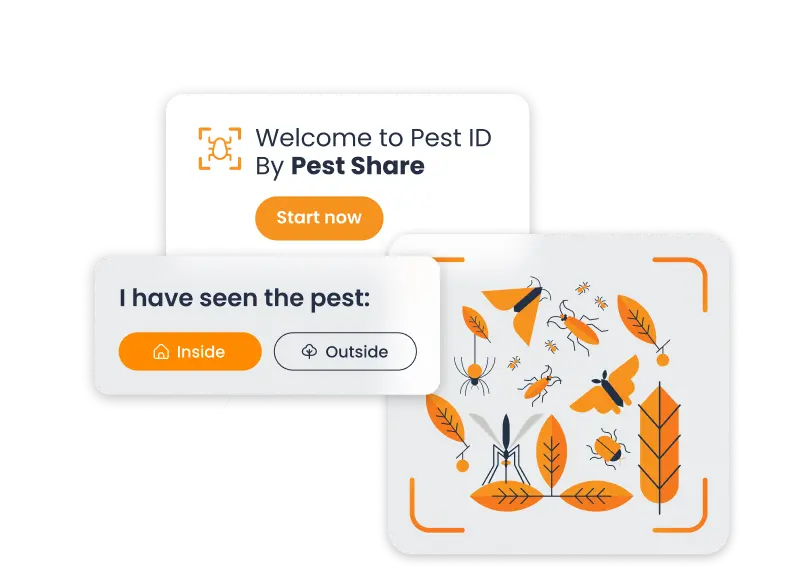Cockroaches are more than just a gross inconvenience—they’re a health hazard that can damage the quality of life for residents. As a property manager, staying on top of pest issues like cockroach infestations is critical for maintaining safe and habitable apartments. It’s not just about avoiding complaints; it’s also about meeting your legal responsibilities and keeping your property in good shape.
But how can you tell when a cockroach problem is more than just an isolated incident? An infestation means there’s a significant population of cockroaches living and breeding in the unit. Look for key signs like droppings that resemble black pepper, egg cases, smears along surfaces, or a musty odor. Cockroaches are nocturnal, so if residents are spotting them during the day, the problem may already be severe.
Being proactive is key. Regular inspections and quick responses to pest reports can help you avoid bigger headaches down the road. By understanding what constitutes an infestation and the responsibilities tied to it, you can ensure your apartments remain pest-free and residents stay happy.
Cockroaches in Apartment Law
Laws about cockroach infestations vary, but they generally fall under broader regulations about maintaining habitable living conditions. These laws are there to ensure that tenants have safe and healthy places to live. For instance, many states and cities require landlords to keep rental properties free from pests. If a tenant reports a cockroach problem, the landlord must address it promptly.

Keep Rentals Pest-Free and Habitable
with Pest Share!
In most places, the law requires landlords to provide pest control services if there’s an infestation. This responsibility is often part of what’s called the “warranty of habitability.” This warranty means that landlords must keep the property in livable condition, which includes being free from pests like cockroaches. Failure to do so can lead to various legal consequences for the landlord, including fines and being ordered to make necessary repairs.
Roaches in Apartment Law: Key Terms and Concepts
To navigate cockroach laws effectively, it’s helpful to understand some key terms and concepts. One important term is “habitability.” This refers to the condition of a rental property being suitable for someone to live in safely and comfortably. Under the warranty of habitability, landlords are required to ensure their properties meet basic living standards. This includes having functioning plumbing and electrical systems, structural integrity, and being free from infestations.
Another key concept is “constructive eviction.”
This occurs when a rental unit is in such poor condition that it forces a tenant to leave. In cases of severe cockroach infestations, a tenant might argue that the apartment is unlivable, and they have no choice but to move out. If a court agrees, the tenant might be relieved of their lease obligations.
“Notice and opportunity to repair” is another essential concept. This means that tenants must inform their landlord about the infestation and give them a reasonable amount of time to fix the problem. Typically, tenants need to provide written notice to ensure there’s a record of the complaint. If the landlord fails to act, tenants may have the right to take further legal steps.
Tenants also need to be aware of “self-help remedies.” In some jurisdictions, if the landlord doesn’t address the infestation in a reasonable time, tenants might be allowed to pay for pest control services themselves and deduct the cost from their rent. However, this should be done carefully and typically requires following specific legal procedures to avoid any complications.
Understanding these terms helps both tenants and landlords navigate their rights and responsibilities regarding cockroach infestations. It sets the stage for informed discussions and actions, ensuring that everyone involved knows what is expected of them. By having this knowledge, tenants can advocate for themselves more effectively, and landlords can ensure they are meeting their legal obligations, thereby maintaining a good relationship with their tenants and avoiding potential legal disputes.
Responsibilities of Landlords
Landlords have a big role in keeping rental properties pest-free. When it comes to cockroaches, landlords are usually responsible for making sure the property is livable, which means no infestations. This responsibility often starts even before a tenant moves in. Landlords should ensure the unit is clean and pest-free. Regular inspections and maintenance can prevent infestations from starting.
If a tenant reports a cockroach problem, the landlord must act quickly. This usually involves hiring a professional pest control service to inspect and treat the property. Ignoring a tenant’s complaint about cockroaches is not just bad practice; it can lead to legal trouble. Landlords must keep records of all pest control treatments and communications with tenants about pest issues. This helps show they are taking their responsibilities seriously.
In many places, landlords must follow specific laws about pest control. For example, they might need to give tenants advance notice before entering the property for inspections or treatments. They might also be required to inform tenants about what chemicals will be used during pest control treatments, ensuring everyone’s safety. By staying on top of these duties, landlords can maintain a good relationship with their tenants and keep their property in good shape.
Tenant Rights
Tenants also have rights when dealing with cockroach infestations. Knowing these rights helps tenants take appropriate action if they find themselves living with unwanted pests. First, tenants have the right to a habitable home. This means that if there is a cockroach infestation, the landlord is legally required to address the problem. Tenants should report any signs of cockroaches to their landlord immediately. It’s best to do this in writing, so there’s a record of the complaint.
If the landlord does not respond to the complaint or fails to fix the problem, tenants have several options. They can contact local health or housing authorities to report the issue. These authorities can inspect the property and order the landlord to make necessary repairs. In some cases, tenants might be allowed to withhold rent until the problem is fixed. However, this is a serious step and should be done with caution, often with legal advice.
Tenants also have the right to break their lease if the landlord does not address a serious cockroach infestation. This is called “constructive eviction.” Tenants need to prove that the infestation makes the apartment unlivable and that the landlord failed to take action. Before taking this step, tenants should document the infestation, their communications with the landlord, and any actions taken to resolve the issue. This documentation can be crucial if the case goes to court.
Can You Be Evicted for Having Roaches?
Many tenants worry about being evicted if they have cockroaches in their apartment. Generally, a tenant cannot be evicted just for having cockroaches. However, there are some exceptions. If a tenant’s behavior causes or worsens the infestation, the landlord might have grounds for eviction. For example, if a tenant keeps the apartment in extremely poor condition, attracting pests, the landlord could argue that the tenant is responsible for the problem.
Landlords need to follow proper legal procedures to evict a tenant. They cannot simply force someone out because of a cockroach issue. Instead, they must provide evidence that the tenant’s actions caused the infestation and give the tenant a chance to correct the problem. If the tenant fails to do so, the landlord might then proceed with an eviction notice. This process can vary depending on local laws, so both tenants and landlords should be aware of their rights and responsibilities.
Can You Sue an Apartment Complex for Roaches?
If a cockroach infestation is severe and the landlord fails to address it, tenants might consider suing the apartment complex. To do this, tenants usually need to prove that the infestation makes the apartment unlivable and that the landlord did not take reasonable steps to fix the problem. Tenants should document everything related to the infestation: photos, videos, and written communications with the landlord.
Lawsuits can result in different outcomes. In some cases, tenants might receive compensation for damages, such as medical bills if the infestation caused health problems. Other times, the court might order the landlord to make repairs or terminate the lease without penalty. Suing an apartment complex can be a lengthy and stressful process, so it’s often a last resort. Before taking legal action, tenants should try to resolve the issue directly with their landlord and seek help from local housing authorities if needed.
My Apartment Has Roaches, Can I Break My Lease?
If your apartment has a serious cockroach problem and your landlord isn’t fixing it, you might wonder if you can break your lease. The answer is yes, but there are some steps to follow. First, you need to document the problem. Take photos or videos of the cockroaches and keep records of your communication with the landlord.
Next, give your landlord a written notice about the issue and allow them a reasonable amount of time to fix it. What counts as “reasonable” can vary, but usually, it means at least 14 days. If the landlord still doesn’t take care of the infestation, you can then consider breaking your lease.
Before you move out, it’s a good idea to check local laws and maybe even consult a lawyer to make sure you’re on solid ground. You don’t want to end up in legal trouble for leaving early. If everything checks out, you can move out and not be responsible for the remaining rent. This process, known as “constructive eviction,” protects tenants from having to live in unsafe conditions.
Preventing Cockroach Infestations
Preventing cockroach infestations starts with good habits. For both tenants and landlords, keeping things clean is key. Cockroaches are attracted to food, water, and shelter, so minimizing these can help keep them away. Tenants should store food in sealed containers, clean up spills immediately, and take out the trash regularly.
Landlords can do their part by ensuring the building is well-maintained. This includes fixing leaks, sealing cracks and holes where cockroaches might enter, and arranging regular pest control services. Regular inspections can catch problems early before they turn into full-blown infestations.
Another important step is communication. Tenants should report any signs of cockroaches to their landlord right away. Quick action can prevent a small problem from becoming a big one. Landlords should respond promptly to these reports and take the necessary steps to address the issue.
Preventative pest control measures, like setting traps or using non-toxic sprays, can also help keep cockroaches at bay. By working together and staying proactive, both tenants and landlords can enjoy a cockroach-free living environment.
Understanding cockroach laws in rentals helps everyone involved. Tenants can ensure their homes are safe and landlords can avoid legal issues. If you have a cockroach problem, know your rights and take the right steps. And remember, keeping things clean and reporting problems early can make a big difference.
Need help with a pest problem? Contact Pest Share for reliable pest control services. We’re here to make sure your homes and properties stays pest-free!







